 At a glance
At a glance
Expert’s Rating
Pros
- Excellent overall performance
- Super affordable
- Maintains good pace during long writes
Our Verdict
Our first encounter with a Lexar NMVe SSD reveals a fetching combination of price and performance. It fell only a little shy of the overall speed title.
Best Prices Today: Lexar NM790

$69.99
Our first look at a Lexar SSD turned out to be a pleasant experience, and then some. It’s the fastest PCIe 4.0 NVMe SSD overall we’ve tested to date, although it lagged in random writes quite a bit.
It didn’t cop the overall top spot by a lot mind you, but a win is a win and the only three drives to beat it are all PCIe 5.0.
Further reading: See our roundup of the best SSDs to learn about competing products.
Lexar NM790 price and design
SSD prices have been falling precipitously the last couple of months. For instance, you can find the 1TB NM790 for a mere $69.99. The 2TB is $109.99, while the 4TB version we tested is only $209.99. There’s also a 512GB version for $49.95, but you’d have to be miserly indeed to opt for that over the 1TB. Mind you, not long ago, Amazon was offering all capacities for significantly less, so it pays to practice some diligence.
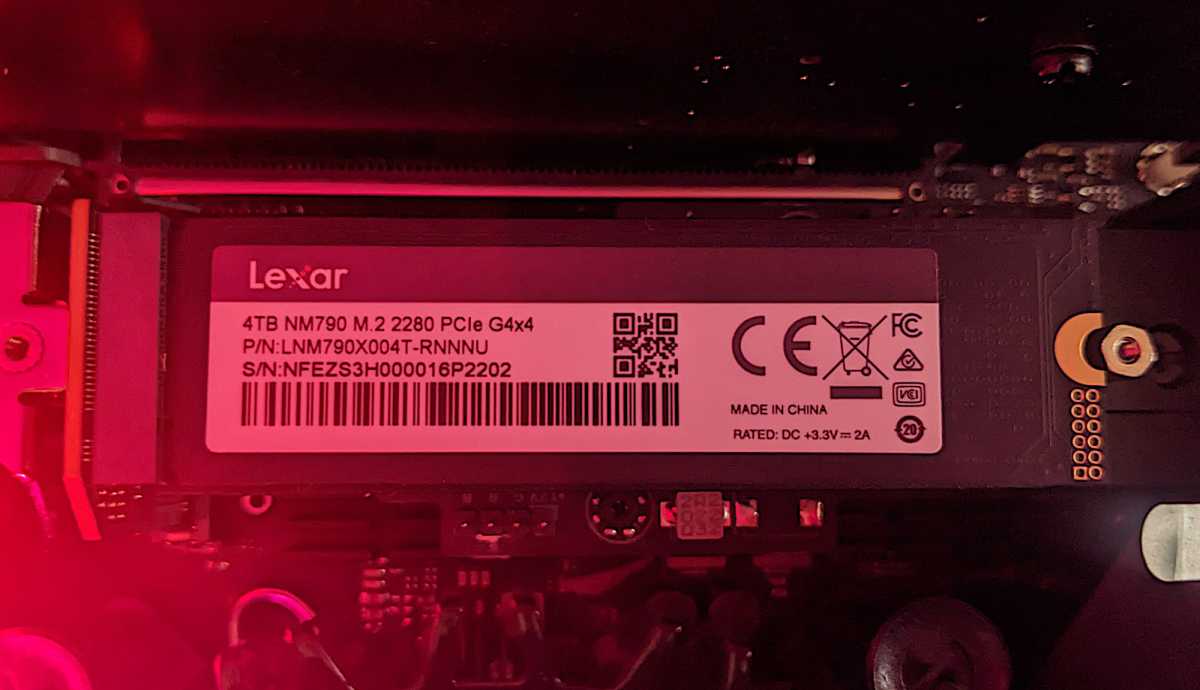
The Lexar NM790, as mentioned, is a DRAM-less (Host Memory Bus) PCIe 4.0 design utilizing a Maxio MAP1602 controller and 232-layer TLC NAND. The lack of DRAM does negatively impact random performance somewhat, but not enough to bother the average user.
Lexar warranties the NM790 for five years. That time span is mitigated (think automobile warranties and mileage) by fairly generous TBW (terabytes that may be written before the cells wear out) ratings: 500TBW for the 512GB version, 1,000TBW for the 1TB, 1,500TBW for the 2TB, and 3,000TBW for the 4TB.
Note that TBW ratings are derived from financial considerations and may not be accurate — as in being a conservative estimate, and considerably less than what the SSD might manage. Also, few users write enough data to even come near official TBW ratings.
The NM790’s real-world transfers were uniformly impressive, and are what pushed the drive to the top of the chart.
How does the Lexar NM790 perform?
As noted up top, the NM790 is the top-performing PCIe 4.0 drive among those we’ve tested. But only if you total up its placement in all the tests. It’s a bit of mixed bag overall and I wasn’t terribly enthused about its random write performance.
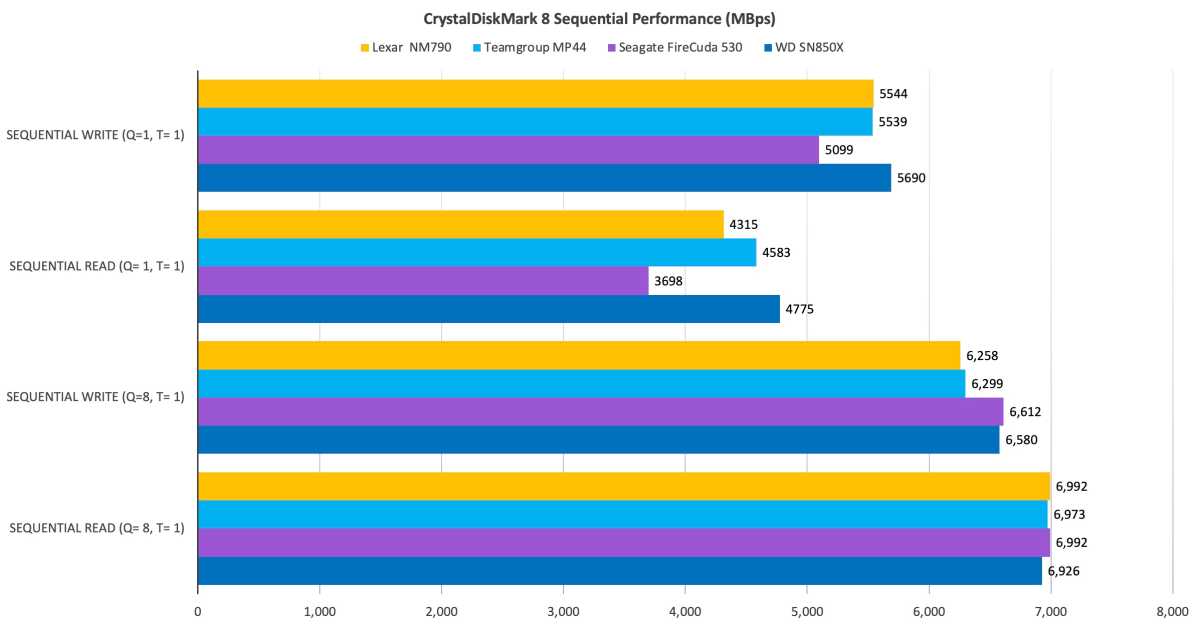
While the NM790 did well in sequential throughput, as noted, the random write numbers were a sadder story. We have noticed that HMB in general suffers in the random write operations compared to SSDs with DRAM. The NM790’s is very low, even for a host memory bus design.
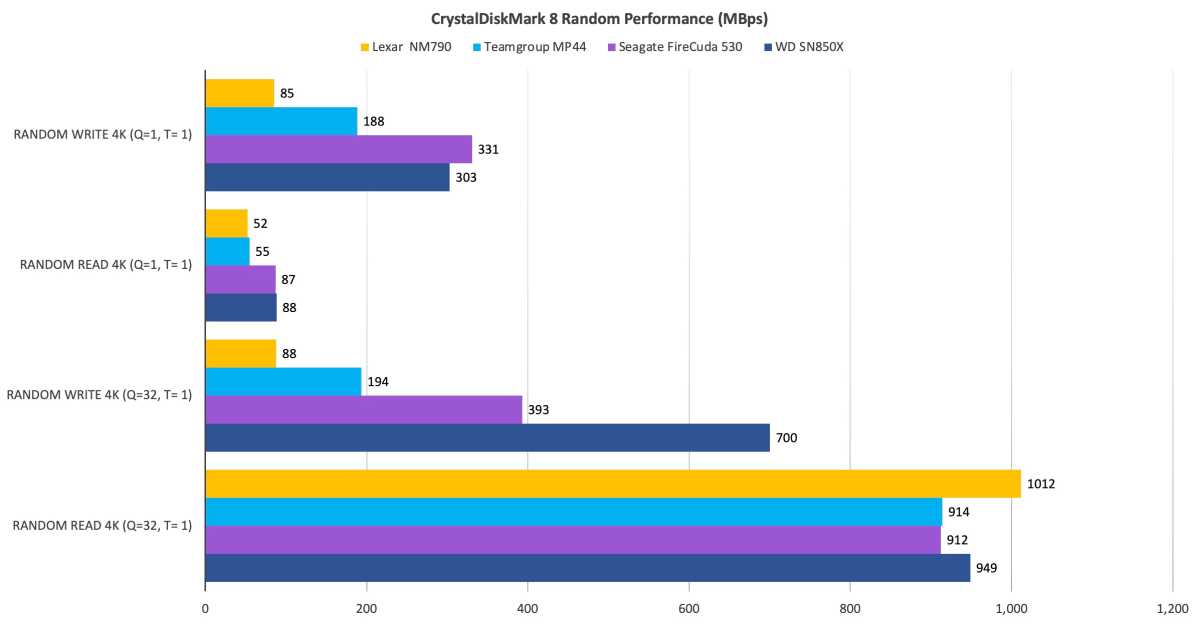
The NM790’s real-world transfers, on the other hand, were uniformly impressive, and are what pushed the drive to the top of the chart. Witness the 48GB tests shown below. Note that HMB drives in general, are very fast at this test these days.
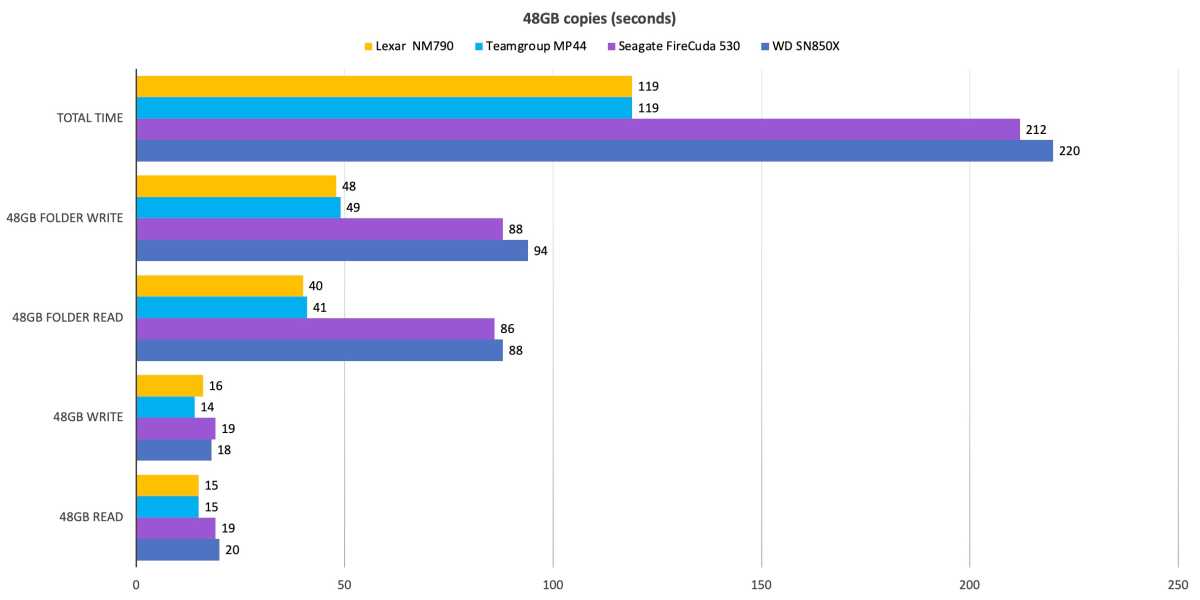
Being a 4TB drive gave the NM790 a huge advantage in our 450GB file write as it means there’s zero chance this test will force it to write the TLC natively or have to do housework to free up space. To force a slowdown, we wrote even more data.
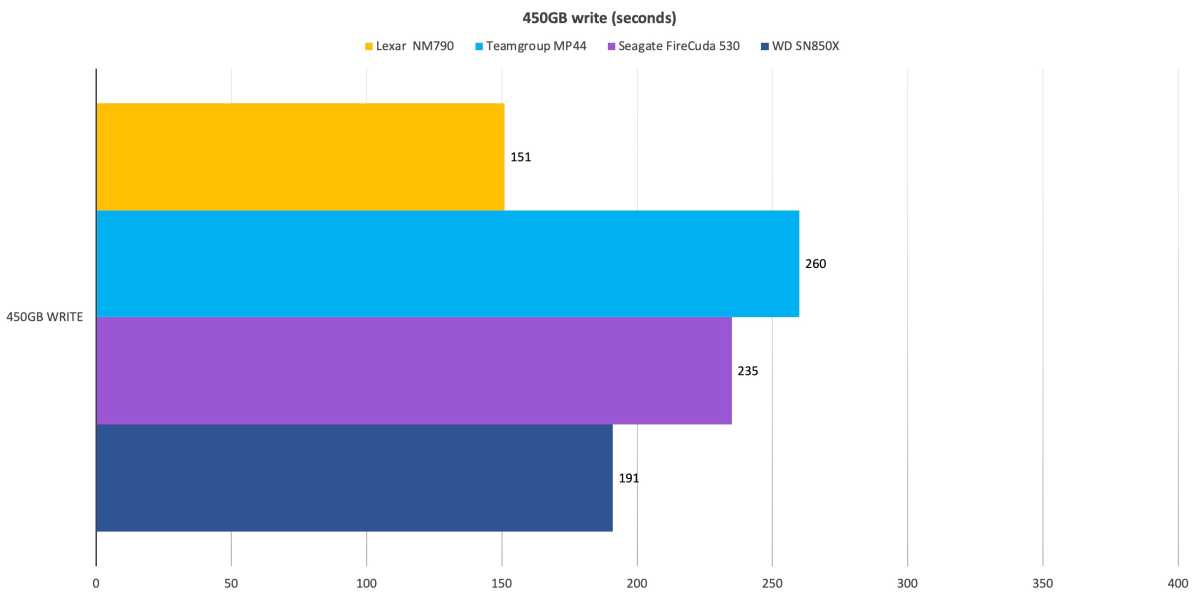
But the NM790 was also very quick writing our 900GB file (not shown), taking only 5 minutes and 23 seconds. Again, being 4TB means lots of NAND for secondary caching, though the Crucial T700 wrote the same file in 4 minutes, 44 seconds.
We finally resorted to filling the drive, but even when we saw the drop, it was only to around 700MBps with the drive 75 percent full. It maintained that and actually jumped to 1.8GBps at around the 95 percent mark. The latest TLC NAND is startlingly fast even when written natively.
Is the Lexar NM790 worth it?
Though you’ll get better random and operating system performance from a DRAM design, you likely won’t notice it in everyday use. That means most people will be fine with a late gen HMB design such as the NM790, which is one of the best of the current crop. And there’s no way we can complain about the price.
How we test
Internal drive tests currently utilize Windows 11, 64-bit running on an X790 (PCIe 4.0/5.0) motherboard/i5-12400 CPU combo with two Kingston Fury 32GB DDR5 4800MHz modules (64GB of memory total). Both 20Gbps USB and Thunderbolt 4 are integrated to the back panel and Intel CPU/GPU graphics are used. The 48GB transfer tests utilize an ImDisk RAM disk taking up 58GB of the 64GB of total memory. The 450GB file is transferred from a Samsung 990 Pro 2TB which also runs the OS.
Each test is performed on a newly formatted and TRIM’d drive so the results are optimal. Note that in normal use, as a drive fills up, performance will decrease due to less NAND for secondary caching, as well as other factors.
Caveat: The performance numbers shown apply only to the drive we were shipped and to the capacity tested. SSD performance can and will vary by capacity due to more or fewer chips to shotgun reads/writes across and the amount of NAND available for secondary caching. Vendors also occasionally swap components. If you ever notice a large discrepancy between the performance you experience and that which we report, by all means, let us know.




